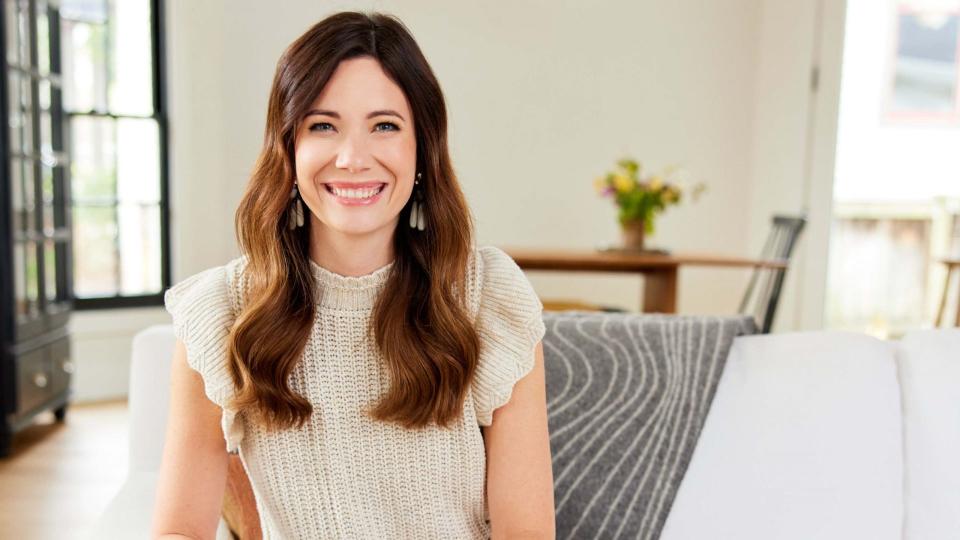Rachel Cruze: Top 3 Money Questions I Get Asked

Finding reliable answers to your personal finance questions can be challenging. Sources offer different and sometimes contradictory guidance on managing your finances, and it’s tricky to know what to believe. That’s why so many people turn to experts for advice.
Find Out: 12 Ways To Get Ahead of 99% of People Financially According to ChatGPT
Learn More: How To Get $340 Per Year in Cash Back on Gas and Other Things You Already Buy
In a recent video on her YouTube channel, personal finance author and social media personality Rachel Cruze covered the top three money questions viewers ask. Here are her answers.
Wealthy people know the best money secrets. Learn how to copy them.
1. What Are Your Thoughts on Retirement Investing?
Saving for retirement is a major financial goal for many people, so it’s no surprise viewers often ask Cruze about her thoughts on this topic. Her view is that “match beats Roth beats traditional” when it comes to retirement investing.
“Match” refers to an employer match of your retirement savings in a 401(k). Employers often sponsor retirement savings plans for their employees, called 401(k) accounts, and match employee contributions to those accounts up to a certain amount.
For example, your employer might offer a 100% match for contributions up to 5% of your yearly salary. If you make $100,000 per year and contribute $5,000 to your 401(k) — 5% — then your employer will put another $5,000 into your 401(k) account. Employer matching is essentially free money given as a reward for saving for retirement.
Explore More: 5 Frugal Habits of Mark Cuban
Traditional vs. Roth IRAs
Cruze advised “to go up to the match if your employer offers one and then go over to a Roth IRA. If you still have money left, you can go back to your 401(k)”. A Roth IRA is a retirement account that you manage individually and to which you contribute after-tax funds. You will not owe taxes on your Roth IRA funds upon withdrawal at retirement.
Traditional IRA accounts are the opposite. You contribute pretax dollars but owe taxes on the funds when you withdraw them in retirement. Cruze favors Roth IRAs over traditional IRAs because “your income continues to go up, and so you’re going to be at a different tax bracket when you retire.” You don’t have to worry about paying the possible higher tax rate in the future when you use a Roth IRA.
2. How Should I Approach Saving and Paying Off Debt?
Cruze said people often ask her whether they should throw all their savings at their outstanding debts to pay them off.
“My answer for this one has always been the same, and it will never change. That is, have a $1,000 emergency fund, but then everything else? Throw at your debt.”
She acknowledged that putting so much of your savings toward paying off debt can be frightening. However, according to Cruze, the upside is that “once you have no [debt] payments, you’re able to boost that fund back up to a fully funded emergency fund of three to six months of expenses.”
When you have outstanding debt, you’re losing money every month on interest payments. Putting the bulk of your savings toward eliminating that debt can ultimately leave you in a stronger financial situation.
Cruze noted, “The faster you can pay off debt, not only are you getting rid of money that you’re probably paying high interest on, you’re actually probably getting ahead.”
3. How Do I Budget?
Followers also frequently ask Cruze about budgeting. She gets questions like, “How do I budget?” and “Can I budget on an irregular income?”
Her recommended budgeting approach, regardless of your circumstances, remains the same.
“We always teach a zero-based budgeting approach, which is your income for the month minus all of your expenses should equal zero.”
To use zero-based budgeting:
List your expected household monthly income, including income from side hustles or other sources.
List your expected monthly expenses, starting with essentials like housing, transportation, utilities and food. You may need to estimate some expenses that vary from month to month.
If you still have money left over after subtracting your expenses from your income, put that money toward your financial goals, like building an emergency fund or paying off your debt.
Cruze advocated using zero-based budgeting because “every dollar of your income has a purpose and you know where it’s going.” Don’t worry if your actual expenses don’t line up perfectly with your estimates.
Cruze noted that “the budget can fluctuate throughout the month. You may have to change some categories. It is a living and breathing part of your life.”
More From GOBankingRates
I'm a Bank Teller: 4 Reasons You Should Withdraw Your Savings Right Now
This is The Single Most Overlooked Tool for Becoming Debt-Free
This article originally appeared on GOBankingRates.com: Rachel Cruze: Top 3 Money Questions I Get Asked

 Yahoo Finance
Yahoo Finance 